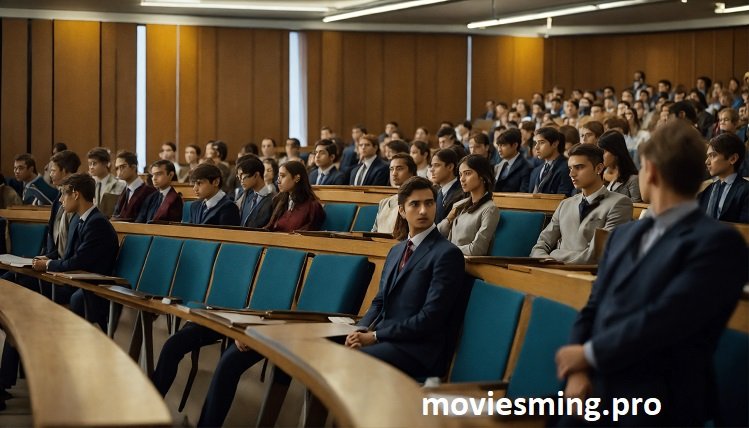Introduction
Trial periods in movie reviews are important since, trial period movie review in the realm of film, opinions can differ as much as the genres themselves. This blog delves into the importance of trial periods and how they influence how critics and viewers alike view and react to movies. A film’s first reactions can frequently determine how it does in cinemas and beyond, so for directors, producers, reviewers, and audiences alike, the tria ltrial period movie review run is crucial.
What is a Trial Period in Movie Reviews?
In film reviews, the first critical reception a picture receives soon after its release is referred to as the “trial period.” This usually covers the first several days or weeks after early viewers and professional critics write their assessments and viewpoints. At this point, the film’s positives, negatives, and overall influence are examined and shared on a variety of media outlets.
The Importance of First Impressions
Initial impressions hold great importance in the entertainment sector. Public opinion and expectation for a film might be influenced by the first reviews and responses received during the trial period. While unfavorable reviews may discourage prospective viewers, favorable ones can create excitement and draw crowds to cinemas. To get the best possible first impression and maximize box office and critical praise, filmmakers and studios frequently make significant investments.
Impact on Box Office Performance
Reviews from the trial period can have a direct effect on a film’s box office performance. While poor reviews may cause ticket sales to drop off quickly, positive reviews can result in great opening weekends and long-term audience enthusiasm. In order to assess a movie’s commercial potential and forecast its financial performance during its theatrical run, box office analysts keep a close eye on these reviews.
Influence on Audience Perception
Reviews of trial periods are quite important in influencing how audiences perceive and make decisions. Reviews are frequently used by viewers to determine whether a film is worthwhile of their time and money. While unfavorable reviews might discourage viewers, especially in the cutthroat world of contemporary streaming services and movies, positive reviews can thrill viewers and boost attendance.
Role of Critics and Review Aggregators
During the trial phase, critics are powerful voices who offer knowledgeable evaluations and comments on the creative value, acting, screenplay, and directing of a film. These reviews are combined into aggregated scores by review aggregators such as Rotten Tomatoes and Metacritic, which offer a consolidated picture of critical consensus. These media outlets have enormous influence over public opinion and can affect a movie’s legacy and general reception.
The Evolution of Trial Periods in the Digital Age
Trial durations have changed in the digital era in tandem with improvements in media consumption and communication. Instantaneous comments and debates among users on social media sites frequently influence early impressions of movies before official reviews are released. A film’s reception and financial feasibility have been affected by trial periods more quickly due to the quick spread of opinions.
Strategies for Film Marketing and Publicity
Film studios and producers use a variety of tactics to efficiently handle reviews during the trial period. Embargo agreements, pre-release screenings, and focused marketing activities are all meant to sway early opinions and create good publicity. On the other hand, films that encounter difficulties could adjust their marketing approaches in response to early reviews in order to lessen any unfavorable effects.
Case Studies of Successful Trial Period Campaigns
Films that are successful use trial period reviews to their advantage. These movies have the potential to continue their popularity after their initial release, winning awards and enjoying long-term success at the box office thanks to great critical praise and favorable word-of-mouth. Examining these case studies offers insightful information on successful audience engagement and marketing tactics.
Ethical Considerations in Movie Reviews
During the trial phase, ethical issues come up, especially with regard to the objectivity and integrity of criticism. The validity of critical evaluations can be impacted by matters like sponsored content, conflicts of interest, and the influence of studio relationships on reviews. Sustaining the integrity of film review and the confidence of viewers depends on upholding openness and moral principles.
The Longevity of Reviews Beyond the Trial Period trial period movie review
While trial period reviews set the initial tone for a film’s reception, their impact extends beyond the immediate release window. Films can recover from initial setbacks through strong word-of-mouth, sustained marketing efforts, and awards recognition. The longevity of reviews underscores the dynamic nature of audience tastes and the enduring legacy of films beyond their trial period reception.
Conclusion
In summary, trial periods in film reviews are critical junctures that influence how critics and viewers perceive a film. Comprehending their importance enables us to recognize the intricate forces operating inside the film industry. Trial periods continue to be an essential part of the moviegoing experience, whether they are affecting box office performance, influencing public opinion, or directing marketing initiatives.
FAQ
Why do trial period reviews matter?
Trial period reviews shape public perception and box office results by establishing the initial tone for a film’s reception.
How do critics influence trial period reviews?
Early reviews from critics have the power to influence public opinion and a movie’s chances of success.

